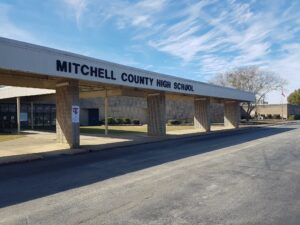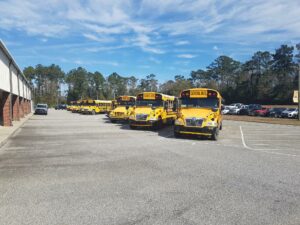
Can Artificial Intelligence support disadvantaged teenagers in improving their mathematics and reading skills? Doctoral candidate Rashmi Khazanchi is investigating this relevant research question in her PhD project conducted with the supervision of Prof Hendrik Drachsler at the Open University of The Netherlands and Dr Daniele Di Mitri at the DIPF.
Mrs Khazanchi is a mathematic and science teacher at the Mitchell County High School, located in the rural area of Camilla, in the southwest of Georgia, United States. The school offers generalist education as preparation for college and vocation and professional training. The high school is a publicly funded school system, and the majority of its student population are African American people. Several of these young students live in modest socio-economic conditions and face challenging living conditions. This disadvantage stems from the long-lasting segregation that the Afroamerican community have faced in the southern United States.
The economy of Mitchell County is still primarily based on agriculture. Cotton fields, pecan trees, peanuts factories and pine trees plantations are among the main business for the local companies and provide jobs for the local population. However, the agricultural economy does not provide equal opportunities, especially for the many families that do not own a business. Especially for the children of these families, education institutions in this area represent the only stronghold of hope.

Mrs Khazanchi and her colleagues at the Mitchell County High School are honourably and tirelessly providing high-quality education to these children. Nonetheless, the general outlook is not looking great. The data of the last five years in state-wide assessment show a general downfall of students performance. Many students struggle to meet the sufficient requirements of proficiency in math and readings which is also reflected in other subjects such as physics, chemistry or literature. The causes of this trend are varied, but it seems evident that one of them is the disruption caused by the Covid19 pandemic.

Mrs Khazanchi and the teaching staff of Mitchell County High School are doing the best they can to revert this trend. Since 2018, the school has introduced an adaptive learning ecosystem that uses intelligent tutoring systems and innovative teaching methods to advance students’ basic literacy skills. Each student is given a laptop to go through their learning modules at their own pace. Mrs Khazanchi, in her research, compares this new AI-support mathematic teaching method with the more traditional teaching method. In her study, she collects data from different schools comparing the relative effect of the teaching intervention on student performance.
Intelligent tutoring systems for adaptive education fall into the broader mission of maximising the students’ education performance. Other measures include investing in vocational education and initiating an apprenticeship model with local businesses.

